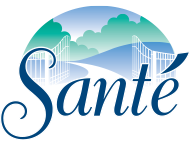
What Is Post-traumatic Stress Disorder?
PTSD is a mental health condition that can develop after a person experiences a traumatic event. Symptoms can develop long after the event has occurred and can persist even for years. Symptoms of PTSD include:
- Nightmares or vivid flashbacks about the traumatic event
- Being easily startled or jumpy
- Irritable or angry moods
- Feelings of hopelessness
- Difficulty feeling any emotions at all
- Loss of interest in hobbies or activities previously enjoyed
- Panic attacks
Many who experience PTSD turn to self-medicating and self-soothing methods, like substance abuse, to try and cope with the difficult emotions and triggers they live with.
How Are PTSD and Substance Abuse Connected?
PTSD is a type of anxiety disorder and can manifest symptoms that are very unpleasant and disruptive to the people who experience it. Often, when a person feels overwhelmed by their PTSD symptoms, or worries that they may become unbearable, they will turn to alcohol or drugs to relieve or prevent those symptoms. Over time, addiction or unhealthy patterns of substance use can develop and complicate matters.
What Is a PTSD Treatment Program Like?
It can be tough to admit that you or a loved one needs help, but choosing to seek treatment for PTSD or substance use can be a brave and wise thing to do. Knowing more about what to expect from treatment and what kind of treatment options are available can feel reassuring. Some of the components of treatment may be:
- Detox – When a client is experiencing a severe addiction, a detox program might be an option. During detox, clients are given medications and treatments to help them navigate the early stages of recovery as safely and comfortably as possible.
- Residential treatment – Clients stay at the treatment center full-time during a residential program. They will participate in individual counseling, group therapy, and other therapeutic services to help support them as they heal and begin the recovery process.
- Intensive outpatient program (IOP) – In an IOP, clients still participate in counseling and group therapy at the treatment center each day but return to their own residences each evening. This can sometimes be a transitional step for clients who have completed a residential program.
- Outpatient counseling and support groups – After completing intensive treatment programs, many clients benefit from continuing their recovery journey on an outpatient basis. Weekly counseling sessions can help, and for those wanting to stay connected to a recovery-focused community, there are many support groups available. Some are geared toward clients who are dealing with substance abuse recovery, while others are meant to support clients who are managing PTSD.
A clinical team will perform an initial assessment at the beginning of your recovery journey to help determine which level of care is most appropriate for you.
Santé Center for Healing: Treatment for PTSD in Texas
At our treatment center in Argyle, Texas, we have been offering inclusive, comprehensive, and impactful therapy for long-term recovery for the past 25 years. Each client receives an individualized treatment plan so that they will get the help they need in the way that works best for them. Our alumni programs offer support and a community that goes beyond treatment and lets clients stay connected with a strong support system. If you or someone you love may be struggling with PTSD and substance use, you do not have to recover alone. We encourage you to reach out to us at 866.238.3154 today.
